The Center for Mass Spectrometry and Metabolic Tracing


The Center for Mass Spectrometry and Metabolic Tracing at Washington University in St. Louis provides a solution for all of your biochemical needs. Our center combines a breadth of instrumentation with advanced in-house informatics platforms to accommodate a wide range of applications. Equipment is regularly refreshed to continuously push the limits of measurement science. Technologies currently available include: GC/MS and LC/MS workflows; EI, ESI, DESI, and MALDI sources; time-of-flight and Orbitrap analyzers; trapped ion mobility spectrometry and traveling wave ion mobility spectrometry; NMR spectrometers; and high-resolution respirometers.
Services at the Center
Our Center is equipped with a wide assortment of resources and instrumentation.
We offer a wide range of metabolic services that are broadly applicable to any sample type including plasma, serum, urine, stool, tissues, plants, and cells in culture.

Untargeted metabolomics and lipidomics
These are hypothesis-generating experiments that compare the relative levels of compounds between two or more different samples classes. Analyses can focus on water-soluble metabolites, lipids, or both for broader coverage. Data are provided as a user-friendly report to facilitate interpretation.
Targeted metabolomics and lipidomics
Only interested in a select number of metabolites or lipids? We will apply methods to measure their absolute concentrations with high sensitivity.
Isotope-tracer analysis
Conventional metabolomics merely provides a snapshot of metabolite levels. Stable isotope tracers allow the dynamics of metabolism to be captured. We offer services to measure metabolic fluxes and nutrient contributions. Samples already labeled with stable isotopes can be provided, or we can label your cells or mice here prior to analysis.
Metabolomics imaging
The metabolism of a tissue varies as a function of anatomical location and cell type. To characterize the spatial dimension of metabolism, we can image metabolites and lipids from tissues by mass spectrometry.
Functional integration of omics datasets
Doing another omics on the same set of samples? We have in-house software for systems biology that integrates the results to identify shared alterations between datasets.
Dose-response metabolomics
Simple pairwise comparisons of treated and untreated samples are insufficient to resolve a compound’s mode of action. Dose-response experiments enable deconvolution of on-target and off-target metabolic effects.
Complementary metabolic assays
Some metabolic assessments will be complemented by Seahorse XF experiments, fluorescent probes for metabolic imaging, redox measurements, etc. These assays can be performed independently or together with our other metabolomics services.
Discovery proteomics
These experiments provide a system-wide and unbiased view of the proteome. Using liquid chromatography/mass spectrometry, the relative levels of thousands of proteins are measured from each sample. For biofluids, workflows using enrichment technologies such as the Proteographare are available to increase the number of proteins measured. Experiments can also be designed to assess post-translational modifications.
Targeted proteomics
Only interested in a select number of proteins? Targeted assays provide high sensitivity, quantitative accuracy, and reproducibility.
Exposomics
Non-targeted analysis and suspect screening are mass spectrometry-based workflows to identify and quantitate chemical exposures. Unlike our metabolomics and lipidomics platforms, these experiments are tailored to measure environmental chemicals such as perfluoroalkyl and polyfluoroalkyl substances (PFAS), phthalates, acrylates, dyes, pesticides, and flame retardants. The analysis can be performed on any biofluid or tissue.

Our People
Our Center is staffed with research associates, PhD staff scientists, and faculty members having over six decades of collective experience in mass spectrometry.
Get in touch
Considering a metabolomics, lipidomics, exposomics, or proteomics experiment? We want to talk with you —contact us at metabolomicscenter@wustl.edu to set up a consultation.